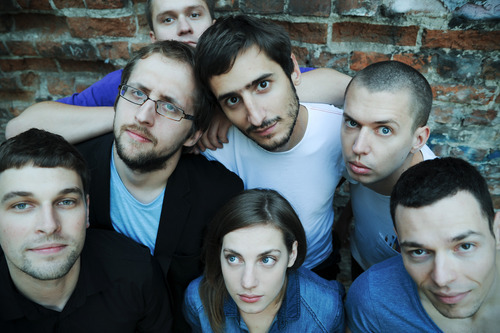I saw Klancyk perform while I was in Warsaw, so here’s an obvious thing.
I’m on my European jaunt, rootless, nomadic, and drinking in improvisation, and well, it’s handy to speak English, as many Europeans do also, well enough to make it possible to meet, collaborate, teach, learn from and perform with them. Even so, if you’re into improvisation and in Europe you’re going to see shows performed in languages you don’t speak. And you should.
Lacking the ability to parse what exactly is being said in a scene, you find other ways of making sense of the scene. Your attention moves to the manifold ways we communicate around the words, ways to which we should be paying more attention anyway. Tone of voice, rhythm of speech, silences, body language, emotional expression, characterisation, physical contact. You find what you can appreciate.
I’ve seen shows recently where I’ve been impressed by the clarity of establishing a scene, of visibility and consistency of character choices, or of the way that the performers engage with the audience at the top. Klancyk really impressed me by making me laugh out loud, several times, at a show I couldn’t honestly understand a word of.

Go see improvisation you can’t understand, and see just how well you can understand it.